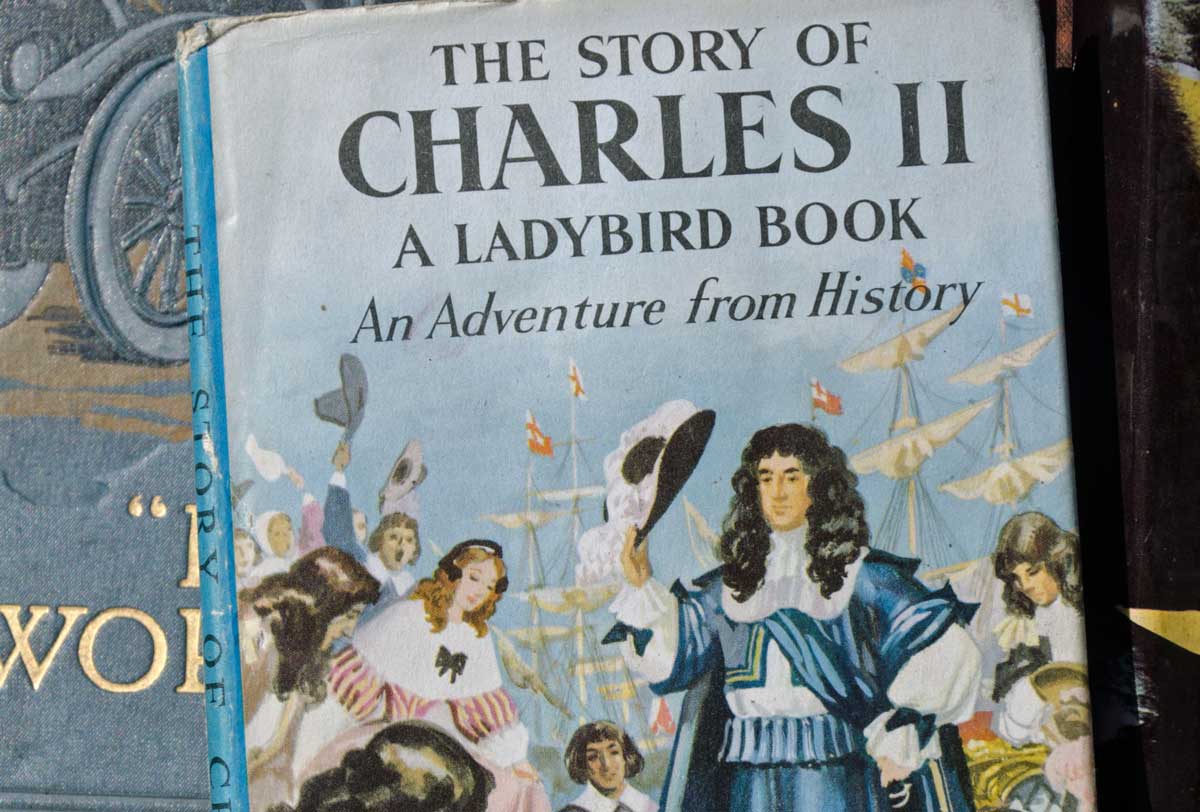A Peach of a Project - 5 minutes read

The playwright Lawrence du Garde Peach (1890-1974) is remembered today as the author of most of the books in the Ladybird Adventures from History series. These were a series of inexpensive, colourfully illustrated, mini-hardback history books for children, which sold millions of copies from the 1950s to the 1980s. For Peach this was a retirement project – if he ever truly retired – and represented just one facet of his creative output.
Ladybird books enthusiasts, of whom there are many, tend to have views tinged with nostalgia. For many, Peach sparked off a life-long love of history. The academic community, however, has not always been as welcoming. To his critics, Peach produced simplified, narrow-minded history, suffused with the illusions of postwar Britain.
Peach was not a completely free spirit, as his publisher had little interest in cutting across the grain of conventional views. The printers Wills & Hepworth tapped into the growing postwar demand for children’s books. They found talented authors and illustrators to produce material for a one-off, fixed fee. Ladybird books became a publishing phenomenon.
The Adventures from History sub-series began in 1956 with Peach’s Alfred the Great. Few authors were as well placed to write on a range of topics including Stone Age Man, Julius Caesar, William the Conqueror, Oliver Cromwell, Charles II, Florence Nightingale, Captain Cook or Charles Dickens. Peach had experience of writing pen portraits for BBC radio’s Children’s Hour, in which he presented potted versions of the past that resonated with a wide audience.
The focus of Adventures from History tended to be on how powerful personalities (predominantly men) shaped history. There was some error and bias as well as variation in quality: Stone Age Man, for example, did not stand up well, even against what was known at the time. In Cromwell, Oliver was depicted getting into a childhood fight with Charles I. There was a winged ‘Viking’ helmet depicted on the front cover of Alfred the Great. According to Peach both King John and Richard the Lionheart were bad, Mary I ‘was a strange woman’ and Captain Scott’s expedition was ‘one of the most gallant ventures in the history of our race’. At the same time, Peach presented the Puritans as a misunderstood group. Cromwell was held up as a good man, although there was passing reference to cruelty in Ireland. The books were period pieces, but issues arose in part from the way they were written. The idea of one author for a huge range of topics led to inevitable shortcomings.
Peach wrote children’s books with flair, elegance and sophistication. For example, he opined in Henry VIII: ‘It is probable that if he had been able to settle down as a family man with his first wife, Catherine of Aragon, and had a family as handsome and intelligent, and as good at sports as he was himself, he would be remembered as one of the best monarchs England ever had.’ When it came to history, he was interested in the past as theatre, a site for quarrying material to transform into archetypes. He was attuned to how material sounded when read. He delighted in making bold assertions for dramatic effect. He remarked of George I: ‘He was a very stupid man, and as he never took the trouble to learn to speak English, he was unpopular with everybody. As a king he was completely unimportant.’
But there was more to Peach than a mere producer of patriotic homilies. As a radio dramatist, he did not shy away from controversial issues, including war, the arms race, and pacificism: Patriotism Ltd (1937) was subject to BBC internal censorship and pulled from the air, a decision that was reported around the world; Night Sky (1937) sought to bring home the realities of modern warfare. Peach also wrote a play about the First World War with no men in the cast: Home Fires (1930). He became known, too, for hard-hitting radio dramas: Bread (1932) was a family farming saga of poverty and emigration from the agricultural depression of the 1840s to the Great Depression. Three Soldiers (1933) highlighted the predicament of ex-soldiers from the Great War who had been thrown on the dole.
Several of Peach’s radio plays touched on racial issues. His stance on the subject was more nuanced than that of many contemporaries and his attitudes ahead of his time. In Ingredient X (1929) he wrote about the corporate exploitation of Africa, spurring a journalist to complain that the play was ‘Bolshevist in tendency’. In John Hawkins – Slaver (1933) Peach adapted Hakluyt’s 16th-century account of the notable voyages and made a point of showing how Hawkins – like other Elizabethan explorers – made profits from slave trading to secure the monarch’s support. In The Cohort Marches: An Episode of the Roman Occupation (1937), Peach recast contemporary issues of colonialism in the context of Roman Britain.
Peach seems to have viewed the late 1960s with considerable bewilderment. He became more conservative in later years – or perhaps social conventions changed ahead of him. Adventures from History presented sometimes questionable views of the past, but the dynamic interplay of Peach’s prose together with John Kenney’s vivid illustrations made each book something of a pocket-sized Gesamtkunstwerk. At the time of his death, Peach warranted only the shortest of obituaries in the Stage and the Guardian. For enthusiasts today, his books conjure fondly remembered episodes of childhood.
David Perkins is Head of Arts and Humanities Research at The King’s School, Canterbury.
Source: History Today Feed